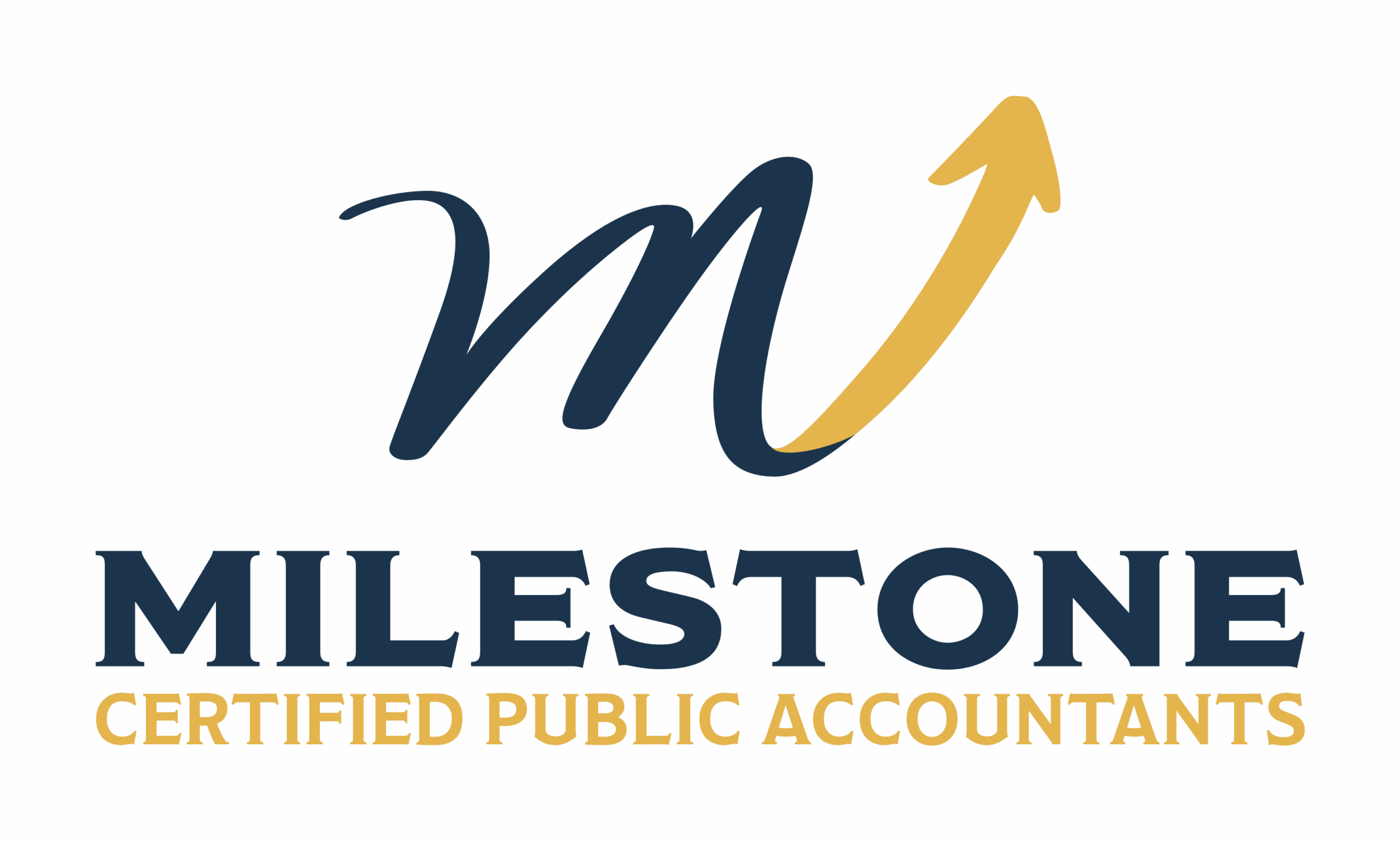At Milestone Certified Public Accountants Inc., we guide business owners through this critical decision with clarity, strategy, and foresight. In this article, we compare LLCs, S-Corps, and C-Corps in 2025 and help you determine which might be the best fit. Choosing the right legal structure for your business is one of the most important decisions you’ll make as an entrepreneur. The entity you choose affects your:
- Tax liability
- Personal legal protection
- Funding and growth potential
- Compliance and administrative responsibilities
What Is an LLC? (Limited Liability Company)
An LLC combines the simplicity of a sole proprietorship with the legal protection of a corporation. It’s a flexible, low-maintenance option for small businesses, freelancers, and real estate investors. Ideally, best for freelancers, consultants, real estate investors, and early-stage businesses.
✅ Pros:
- Limited liability protection
- Pass-through taxation (profits taxed on owner’s return)
- Fewer compliance requirements
- Can elect to be taxed as an S-Corp later
❌ Cons:
- Subject to self-employment tax on net income
- Limited options for issuing shares or raising capital
- Varies by state (e.g., California LLC fee/franchise tax)

What Is an S-Corporation?
An S-Corp is not a business entity type, but a tax election made with the IRS. Both LLCs and corporations can elect to be taxed as S-Corps.
✅ Pros:
- Pass-through taxation
- Avoid self-employment tax on distribution income
- Owners can pay themselves a reasonable salary
- Great tax planning opportunities
❌ Cons:
- Must run payroll (adds complexity)
- Limited to 100 shareholders, all U.S. citizens or residents
- One class of stock only
Best For: LLCs or corporations with consistent profits ($75K+), owner-operators looking to reduce self-employment taxes
Pro Tip: Electing S-Corp status can save thousands annually in self-employment taxes. Talk to Milestone CPAs about making the 2553 election.
What Is a C-Corporation?
A C-Corp is the standard corporate structure taxed as a separate entity. It is ideal for startups seeking venture capital or those planning to go public. Best for startups raising capital, tech companies, and businesses with plans to scale or go public.
✅ Pros:
- Unlimited shareholders (domestic and foreign)
- Access to venture capital and stock options
- Attractive for scaling and reinvestment
- Can retain earnings in the business
❌ Cons:
- Subject to double taxation (profits taxed at corporate and shareholder level)
- More complex reporting and compliance
- Higher administrative overhead
Comparison Chart: LLC vs. S-Corp vs. C-Corp in 2025
| Feature | LLC | S-Corp | C-Corp |
|---|---|---|---|
| Taxation | Pass-through | Pass-through | Double taxation |
| Owner Limitations | Unlimited | 100 shareholders max | Unlimited, including foreign |
| Share Types | N/A | One class only | Multiple classes |
| Self-Employment Tax Savings | No | Yes | No |
| Ease of Setup | Simple | Moderate | Complex |
| Fundraising Potential | Low | Limited | High |
| Best Use Case | Small business | Solo owners with profit | Scalable startups |
Key Questions to Ask Before Choosing
- How important is liability protection and credibility?
- Do you plan to grow or stay lean and simple?
- Will you reinvest profits or take regular distributions?
- Do you need to bring on partners or investors?
- Do you want to reduce self-employment taxes legally?
When to Make the S-Corp Election
If you’re an LLC earning over $75,000/year in profit, you may benefit significantly from switching to S-Corp taxation. Here’s how it works:
- You pay yourself a reasonable salary (subject to payroll tax)
- Remaining profit is taken as a distribution, avoiding 15.3% self-employment tax
- You still file a business return (Form 1120S) and issue a K-1 to yourself
The IRS deadline for S-Corp election is March 15 (or within 75 days of formation). Let Milestone help you file Form 2553.
How Milestone CPAs Can Help
At Milestone Certified Public Accountants Inc., we help clients:
- Avoid pitfalls and costly mistakes
- Choose the right structure for their goals and tax position
- Form LLCs and corporations with legal compliance
- Elect S-Corp status and set up payroll
- Plan for growth, succession, and funding

By Ronak Bhatt, CPA, MBA
Your Partner in Business, Accounting For Your Success
Located in Pleasanton, CA | Serving the Tri-Valley Area
Call us at (925) 320-0309 | Email: ronak@milestonecpas.com | Book Your Schedule Consultation













